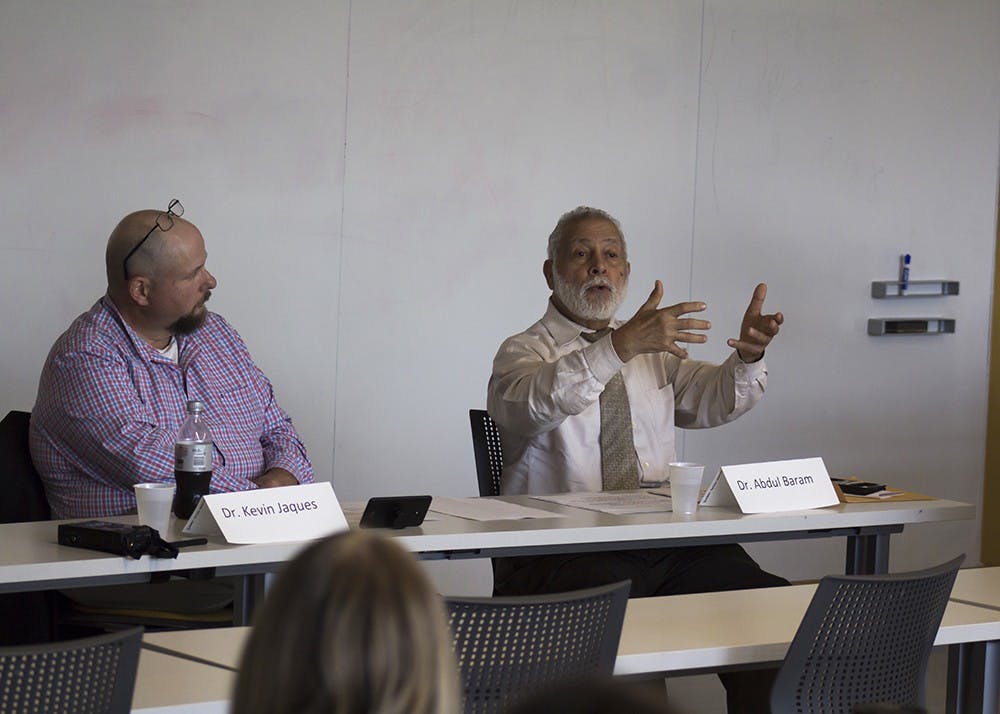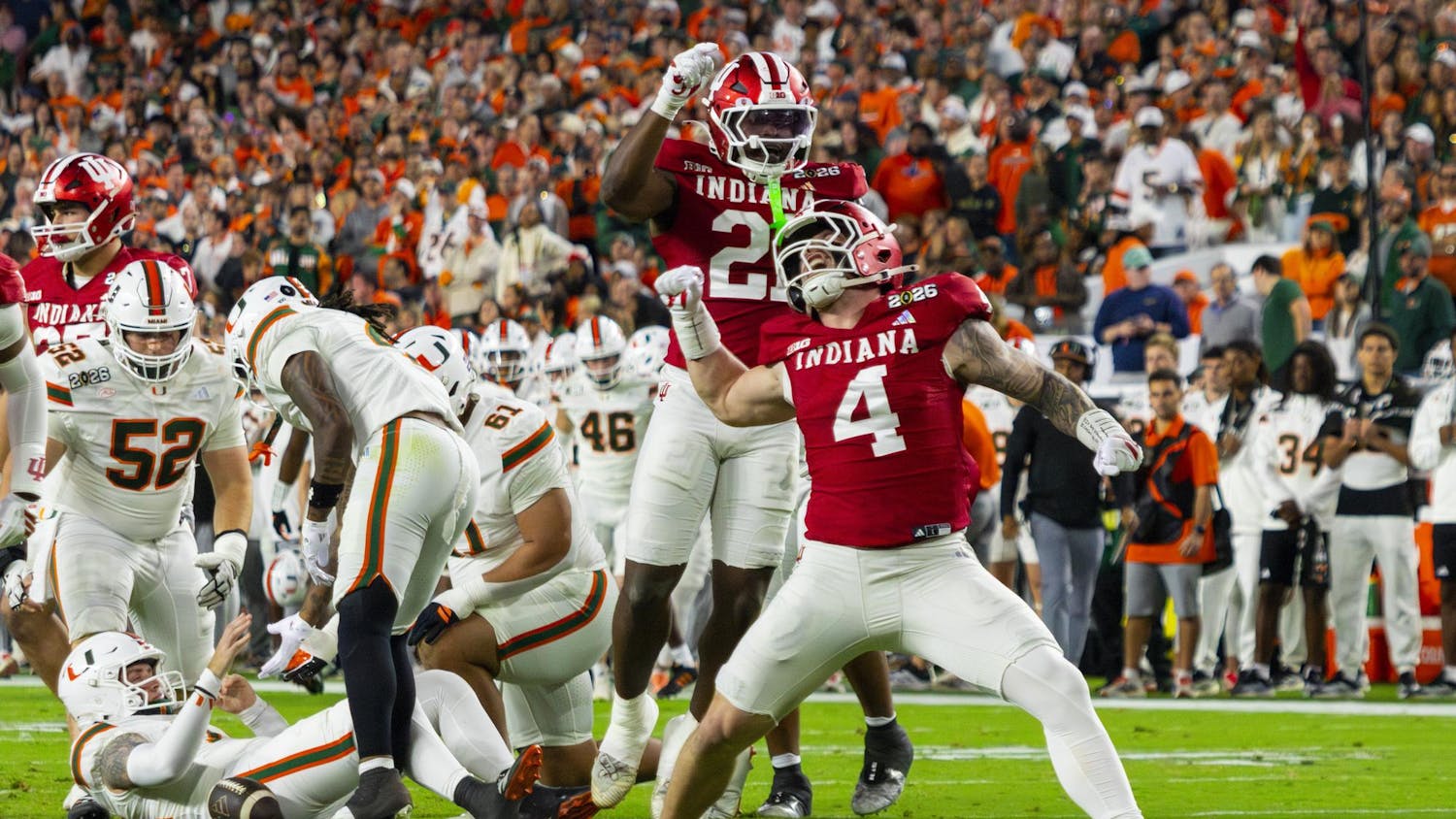Islamophobia has received more attention recently in today's political climate, but the negative association many Americans have with Islam needs to stop, said junior Luma Khabbaz, president of the Muslim Student Association.
“It’s important to show that Islamophobia is not an acceptable part of our society,” Khabbaz said.
Around 40 students met Tuesday night in the Global and International Studies Building to discuss Islamophobia as a part of the 2017 Elimination of Prejudice Week. The event was organized by the Center for the Study of the Middle East and Pi Lambda Phi fraternity.
The panel included Khabbaz, Abdul Baram from the Islamic Center of Bloomington and event moderator Professor Kevin Jacques from the IU Department of Religion.
This is the third year that Pi Lambda Phi has brought multiple events to campus focusing on discrimination in the community as a part of the fraternity’s Elimination of Prejudice Week. Pi Lambda Phi has a history of acceptance, as they were the first fraternity in the U.S. which accepted members regardless of religion or race.
Unlike Pi Lambda Phi's philosophy, the Trump administration released a new travel ban which includes six Muslim-majority nations. North Korea and Venezuela, two non-Muslim majority countries, were also added, but some believe the ban is still unconstitutional and targets Muslims.
Baram spoke extensively about the similarities between Islam and Western religions and the peaceful nature of Islam. He said Jews, Christians and Muslims all worship one God.
“Never I saw one statement in the Quran say ‘hate people,’” he said.
Sophomore Lane Wolf, a member of Pi Lambda Phi, said events like these promote unity and community. He said he learned politics and personal life in the Middle East are more separated than in America.
“They talked about this divide in the U.S. between people and ideologies, all in the public, whereas Dr. Baram said that in the Middle East, it tends to be a lot more political divides,” Wolf said.
Many of Baram’s stories came from his childhood growing up in the city of Aleppo, a city in Syria that has been hit hard by the Syrian civil war. Baram was born in a house that was 900 years old. He said that in 2012, that same house was hit by two rockets. Because of the destruction caused by the civil war in Aleppo, Baram said that he wasn’t sure if he would want to go back.
“I lost many great friends, many relatives,” Baram said.
Baram spoke of a city where people could get along. He said he remembered helping out a family on his way to school on Saturdays, which are considered weekdays in Syria.
“In my childhood, every time I would go to school I’d pass a family who would ask me to light their kerosene stove on Saturday,” Baram said.
Baram said he remembered what his mother had taught him about caring for others when he was very little.
“My mom taught me every day when I woke up, ‘Pray for people.’" Baram said. "Never ‘Pray for Muslims.’ Pray for people.”






